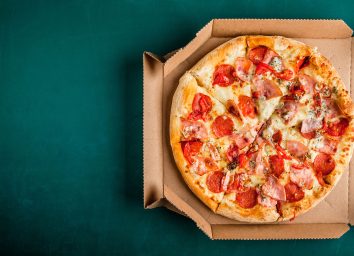Eating Habits to Avoid if You Don't Want High Blood Pressure, Say Experts
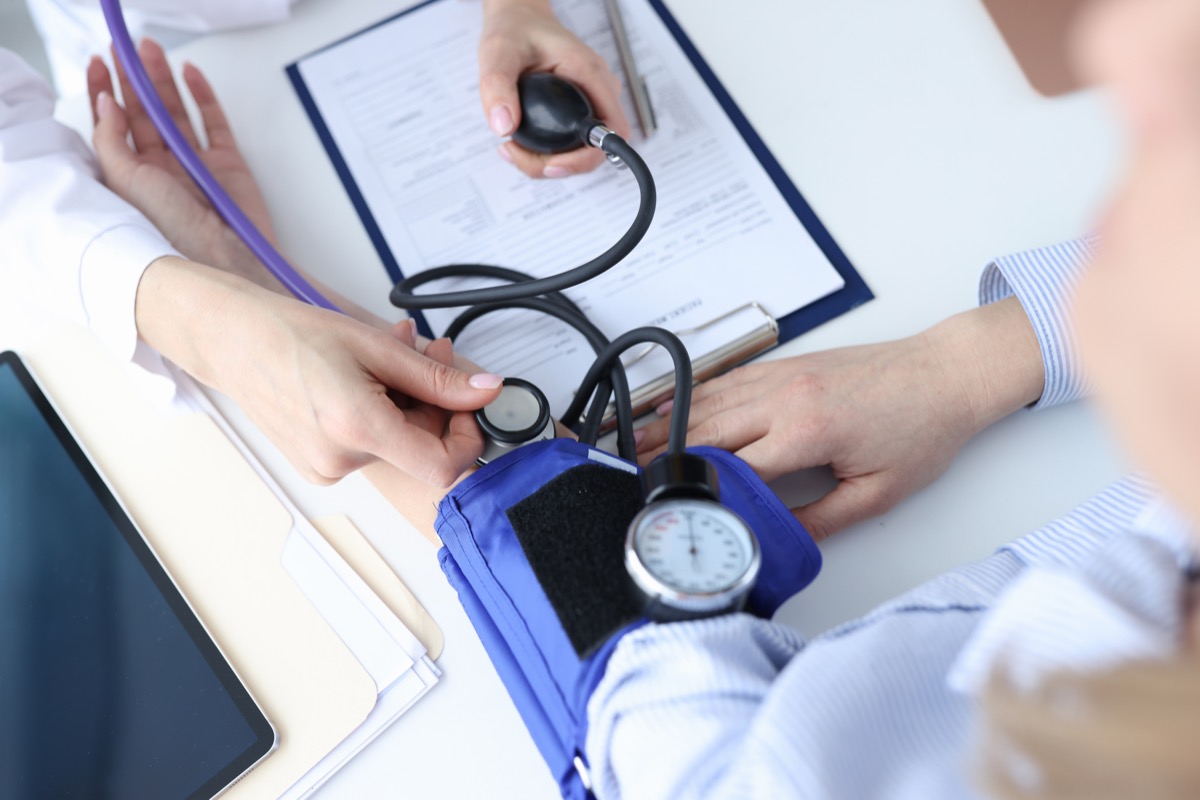
High blood pressure, or hypertension, is a frequent precursor to serious health issues, including heart attack and stroke. A staggering 45% of the U.S. population suffers from hypertension at any given time, according to the Centers for Disease Control and Prevention (CDC).
However, it's not genetics alone that may contribute to your hypertension risk over time. Your dietary habits play a significant role in your likelihood of developing high blood pressure—and in many cases, with the appropriate modifications, the condition can be managed or even reversed. Read on to discover which of your food choices could be causing your blood pressure to creep into dangerous territory, according to experts. And if you want to improve your health the easy way, check out The 7 Healthiest Foods to Eat Right Now.
Regularly eating fried foods

If you want to significantly lower your risk of high blood pressure, limiting your consumption of fried food is a great place to start.
"If you are eating fried foods like fried chicken [and] French fries . . . you are increasing your risks of heart disease, stroke, and diabetes," says Nicole Weinberg, MD, a cardiologist at Providence Saint John's Health Center in Santa Monica, Calif. "All the medicine in the world cannot counterbalance a terrible lifestyle," she cautions.
For more incentive to give up those deep-fried dishes, check out these Dangerous Side Effects of Eating Fried Foods, According to Science.
Consuming too much sodium

Sodium can do a number on your blood pressure—and you're probably consuming more of the stuff than you think. Approximately 90% of people in the U.S. consume an excessive amount of sodium, according to the CDC.
If you want to decrease your risk of high blood pressure, "reduce sodium intake with optimal goal of no more than 1500 milligrams of sodium per day," says David Cutler, MD, a family medicine physician at Providence Saint John's Health Center.
Unfortunately, salt may be hiding in many seemingly innocuous foods. "Pre-mixed seasonings often have huge amounts of hidden sodium, some examples being lemon pepper, garlic salt, dry rubs, and other seasoning blends," says Megan Byrd, RD, of The Oregon Dietitian, who recommends creating your own salt-free spice mixes instead.
Regularly drinking alcohol
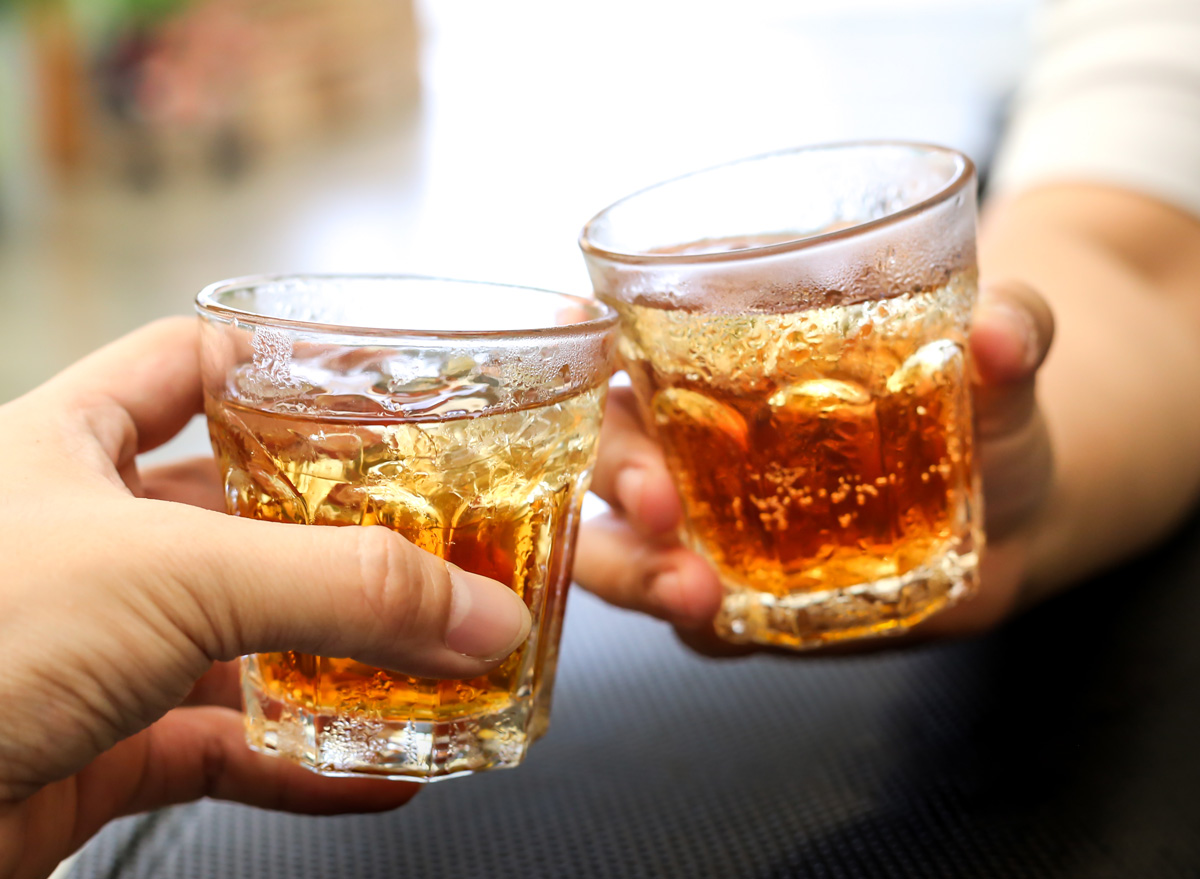
It's not just your liver that alcohol can wreak havoc on—it can do a number on your blood pressure, too. Among a study of 17,000 U.S. adults, those who consumed between seven and 13 drinks a week had significantly higher rates of high blood pressure than teetotalers, according to 2019 research presented by the American College of Cardiology.
"Alcohol consumption can lead to a decline in renal function, which can result in high blood pressure," adds Spencer Kroll, MD PhD, FNLA, of The Kroll Medical Group.
If you're thinking of cutting back on drinking, check out these Surprising Side Effects of Not Drinking Alcohol, According to Experts.
Consuming a sugar-heavy diet
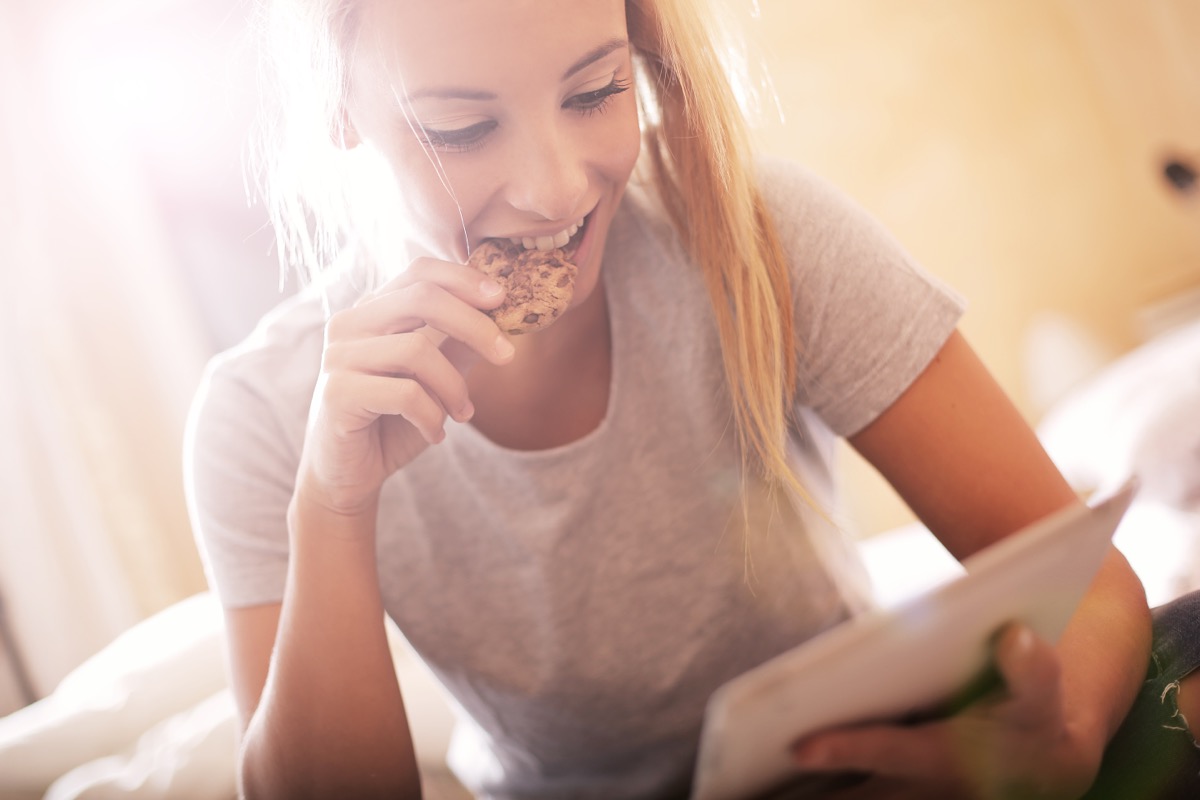
If you want to get your blood pressure into a healthier range, limiting your sugar intake is a good place to start.
"Sugar is inflammatory and increases cardiovascular risk," explains Alexandra Lajoie, MD, a non-invasive cardiologist at Providence Saint John's Health Center.
In fact, consumption of added sugars was significantly linked to increased blood pressure in children, according to a 2014 review of research published in The American Journal of Clinical Nutrition.
Eating meat regularly
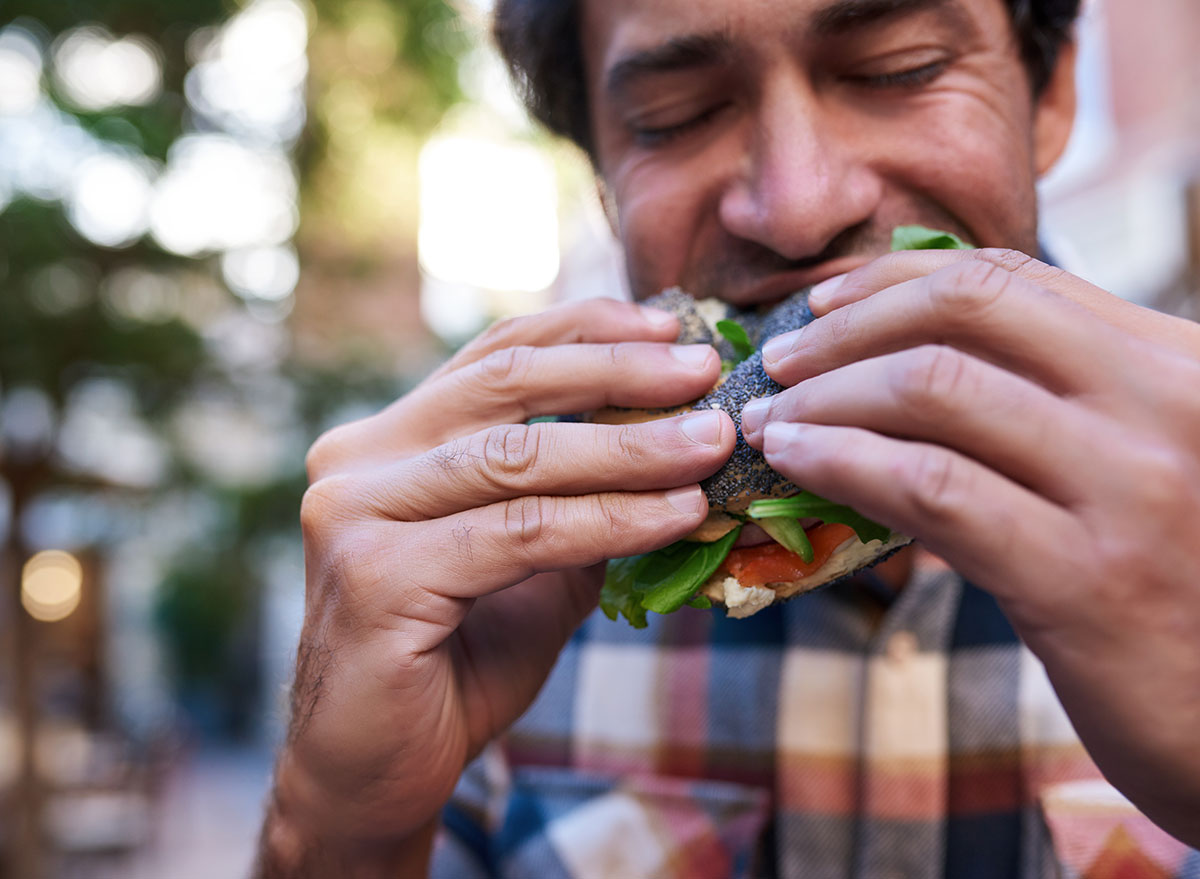
Looking for more incentive to make Meatless Mondays part of your regular routine? Skipping those animal protein-based dishes might just be the key to lowering your blood pressure.
Deli meat is a major contributor to blood pressure issues, according to Alicia Galvin, RD, the resident dietitian at Sovereign Laboratories. "Processed deli and lunch meats are high in sodium," Galvin says. "That's because manufacturers cure, season, and preserve these meats with salt, and one serving can have almost half your daily needs of sodium."
Independent of sodium content, cooking meats at high temperatures contributes to high blood pressure risk, according to research presented at the 2018 American Heart Association Meeting.
Want to start making smarter choices with your preferred proteins? Check out the 30 Best and Worst Packaged Deli Meats.
Consuming a significant amount of licorice
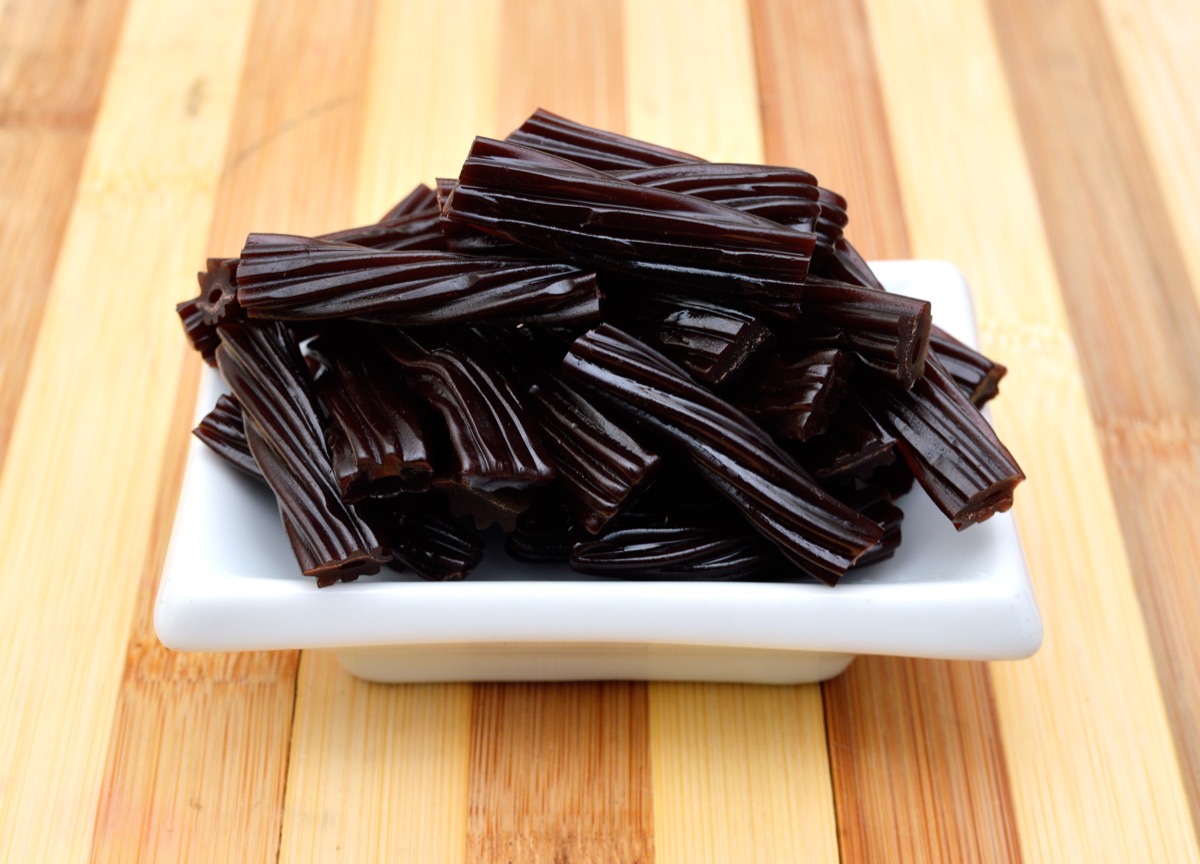
Strange though it may seem, if you're eating a significant amount of licorice, you could be sending your blood pressure into dangerous territory.
"The glycyrrhizin [in licorice] can make your heartbeat at an abnormal rate and increase your blood pressure," says Alexandra Soare, RD, of Food on Mars.
However, Soare notes that this typically occurs when someone consumes more than 100 milligrams of glycyrrhizin a day, or more than most people eat with moderate licorice consumption. If you're eager to improve your health, discover these Side Effects of Giving Up Sugar, According to Science.

